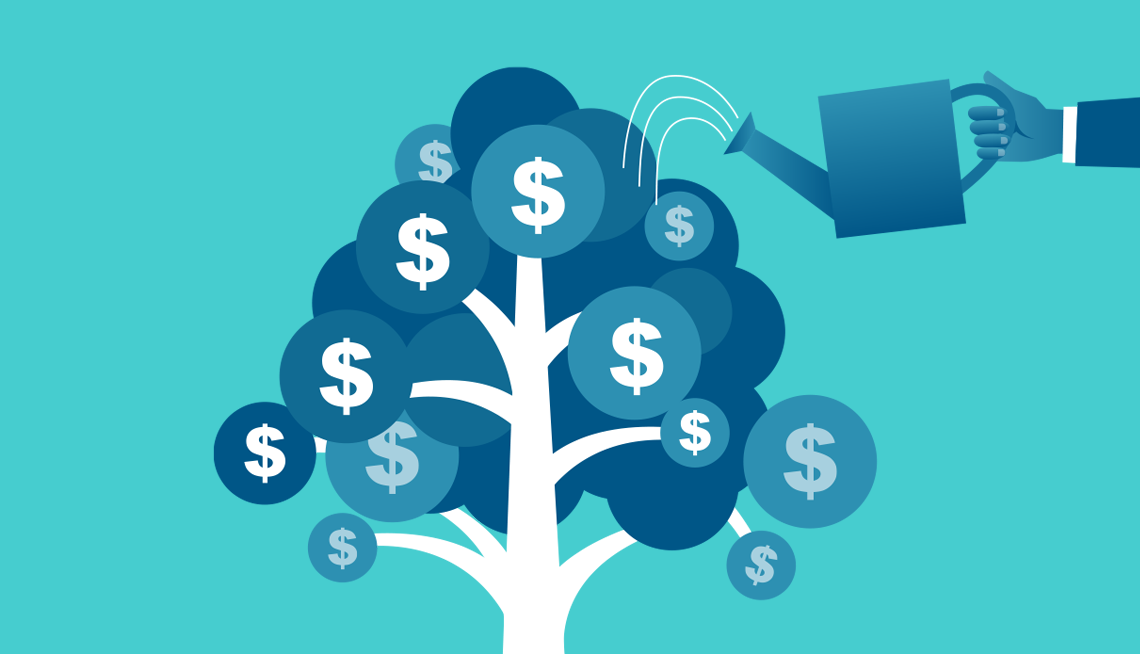How auto iras are helping more workers save for retirement
How auto iras are helping more workers save for retirement"
- Select a language for the TTS:
- UK English Female
- UK English Male
- US English Female
- US English Male
- Australian Female
- Australian Male
- Language selected: (auto detect) - EN
Play all audios:
Research has shown that Americans are far more likely to save for retirement when they can do so through a plan at work, especially one built on automatic payroll deductions. Yet nearly half
of U.S. private-sector workers ages 18 to 64 — about 56 million people — lack access to an employer-sponsored retirement plan such as a pension or 401(k), according to a December 2024 AARP
report. Low-income, African American and Hispanic workers are disproportionately affected, feeding persistent inequity in retirement security. With support from AARP, states are increasingly
stepping up to help close this gap. To date, 20 states have enacted legislation creating “work and save” programs to directly facilitate nest-egg building for people whose employers don’t
offer a retirement plan. In the eight states with plans that were active by 2023, more than 1 million workers have been able to start saving for retirement. Most of the state programs are
automatic IRAs. Auto IRAs require most private employers that don’t sponsor a savings plan of their own to enroll workers in a state-facilitated individual retirement account (IRA) at a
preset savings rate — typically 3 percent to 5 percent of earnings, automatically deducted from paychecks — and increase the contribution annually (a process called auto-escalation), unless
an employee opts out. “The simple fact is that auto IRAs work,” says David John, a senior policy adviser with the AARP Public Policy Institute and a pioneer in developing automatic IRAs.
“They are easy for both employers and employees to set up and use. Thanks to the state programs, a million predominantly low-to-moderate income workers can use payroll deductions to build a
better future.” VIDEO: WHAT IS AN AUTO IRA? Seventeen states have enacted auto-IRA programs; 11 are up and running, and two more are set to start in 2025. Most of the rest are slated to
launch in the next few years. Although they differ in detail, auto-IRA programs are similarly structured state-to-state: * Participating employers pay no costs and are generally responsible
only for ensuring workers can join and payroll deductions are processed. They do not make matching contributions. They cannot terminate an in-house retirement plan for the purpose of
switching to a state program. * Contributions are usually directed into Roth IRAs overseen by state-appointed boards and managed by private financial firms. Roth contributions come from
after-tax wages, so withdrawals in retirement are tax-free. * Employees get a menu of options for investing contributions, generally including a range of target-date funds (TDFs), which
tailor their investment mix to the saver’s projected retirement date, and a variety of stock, bond and income funds. * As with standard workplace plans, enrolled employees are charged
administrative fees, which among current programs range up to $30 a year and/or 0.25 percent to 1 percent of account assets. A handful of states have adopted different models aimed at
encouraging small businesses and nonprofit organizations to voluntarily offer their workers savings opportunities — for example, by choosing a plan through a state-run marketplace or
joining other enterprises in a multiple employer plan (MEP). Work-and-save programs don’t just help workers, John says: They also help small businesses with limited resources recruit and
retain talent by making it easy and cheap for them to provide access to a retirement benefit. “Auto IRAs answer employers’ major concerns — cost and complexity,” he says. “Smaller businesses
with a state retirement savings program are finding that they can compete with bigger firms to attract and keep better employees.” Here are the programs operating or in development and how
they work.
Trending News
India shines in uncertain global economy: NSE MD Ashishkumar Chauhan“India today shines as a beacon of stability and opportunity in the global economy,” he said while speaking at Assocham’...
NSE IPO issue to be resolved soon, confirms Sebi chairman Tuhin Kanta PandeyThe highly anticipated IPO of the National Stock Exchange (NSE) may soon get a green light from the market regulator, Se...
Is 40 MT on the anvil for Tata Steel after clocking 26.6 MT?On November 12, 2018, when Tata Steel conducted the groundbreaking ceremony for the expansion of Kalinganagar plant to e...
Jensen Huang’s Taiwan memory: Pancakes, night markets, and a tomato surpriseSign InHomeRankingsFortune 500 IndiaMost Powerful WomenThe Next 500Forty Under FortyBest B-SchoolsMNC 500ProfilesCompani...
Neither trade nor talks with Pakistan, discussion only around PoK: PM ModiPrime Minister Narendra Modi, speaking in Bikaner, Rajasthan today, said there would be neither trade nor talks with Pak...
Latests News
How auto iras are helping more workers save for retirementResearch has shown that Americans are far more likely to save for retirement when they can do so through a plan at work,...
Contractile units in vertebrate smooth muscle cellsABSTRACT Evidence from isolated smooth muscle cells in rigor indicates that the contractile elements are grouped into se...
Almanac | walz proposed budget | season 2019 | episode 23HOW TO WATCH ALMANAC Almanac is available to stream on pbs.org and the free PBS App, available on iPhone, Apple TV, Andr...
Literacy and Social Emotional LearningAARP Foundation helped more than 1 million older adults living with low income secure more than $1 billion in income, be...
Eating disorders and women over 50 - anorexia, bulimiaThese renewed concerns about weight and appearance frequently emerge alongside stressors unique to the 50-plus age group...
